When it comes to farming and gardening, certain compounds play a vital role in the growth and health of plants. One such compound is humic acid, which has proven to be highly beneficial for various crops, including dragon fruit. Humic acid is a natural and organic substance that provides numerous benefits to plants, helping them grow stronger and healthier. In this article, we will explore the importance of humic acid for dragon fruit plants, especially for the pink variety, and how it helps improve root development, plant growth, and disease resistance.
What is Humic Acid for Dragon Fruit Plants?
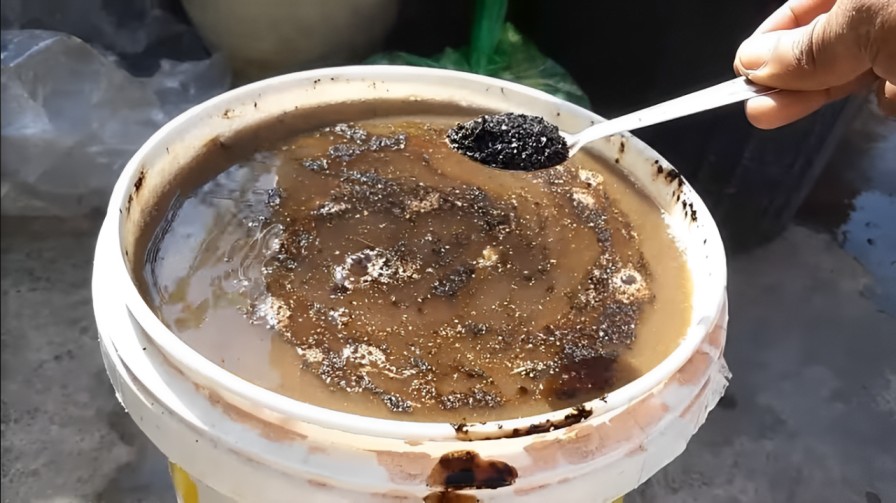
Humic acid 98 is an organic compound that is formed when plant and animal material break down over time. As these organic materials decompose, they transform into humic substances, which include humic acid, fulvic acid, and humin. These substances are extremely beneficial for soil health and plant growth.
- Humic Acid: Improves the soil structure, enhances nutrient uptake by plants, and supports overall plant growth.
- Fulvic Acid: Helps in delivering nutrients to plant roots and promotes healthier plants.
- Humin: Adds stability to the soil and increases its ability to retain moisture, which is crucial for the consistent growth of dragon fruit.
These compounds work together to create a balanced environment for plants to thrive, and they are especially important for crops like dragon fruit.
Why humic acid for plants is essential
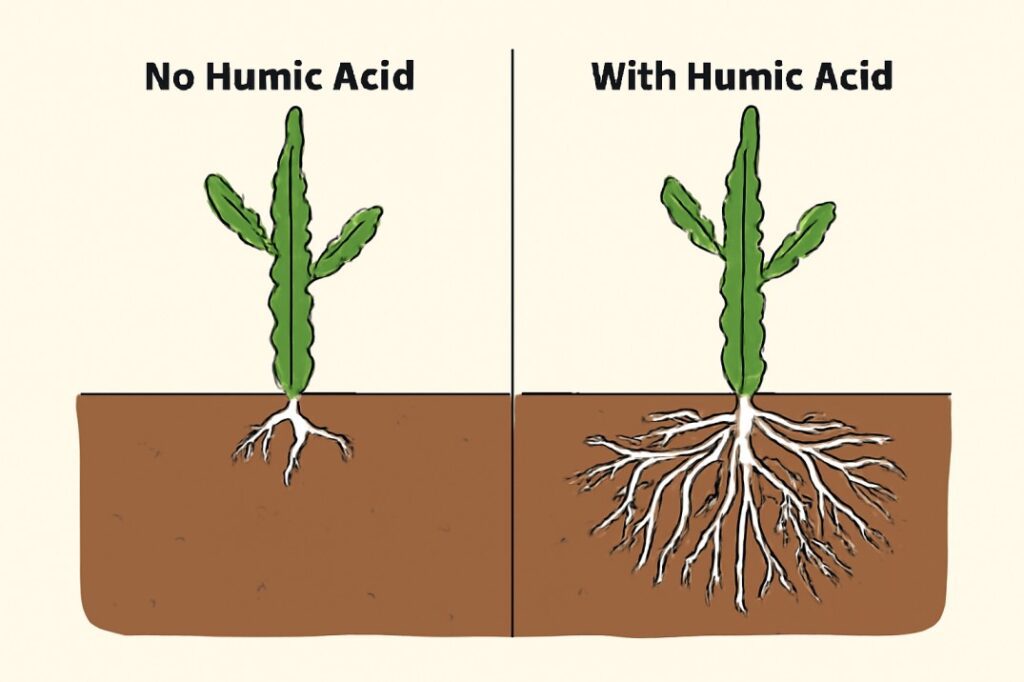
Humic acid for plants plays several key roles in the cultivation of dragon fruit. It helps boost root development, supports healthy plant growth, and enhances disease resistance. Let’s break down these benefits further:
1. Boosts Root Development
Roots are the foundation of any plant, and strong roots are essential for healthy growth. Humic acid stimulates the growth of dragon fruit roots, which results in stronger, healthier roots. The dragon fruit plant has both small and large roots, and humic acid ensures that these roots maintain good quality. By promoting better root development, humic acid helps the plant absorb nutrients from the soil more effectively.
- How It Works: Humic acid improves the soil structure, allowing roots to spread out and penetrate deeper into the soil. This creates a more robust root system that can efficiently absorb water and nutrients, resulting in stronger and healthier plants.
2. Supports Healthy Plant Growth
humic acid for plants helps plants absorb essential nutrients from the soil. It activates the micronutrients that are present in the soil, making them more available to the plant. This boosts the plant’s overall growth, helping it grows faster and stronger. For dragon fruit, humic acid not only supports general plant health but also improves the size, quality, and taste of the fruit.
- How It Works: humic acid for plants creates a favorable environment for nutrient uptake. It helps plants absorb key elements like nitrogen, phosphorus, and potassium, which are essential for healthy growth and fruit production. As a result, dragon fruit plants become more vigorous and produce larger, better-quality fruit.
3. Enhances Disease Resistance
Dragon fruit plants, like any other plants, are susceptible to pests and diseases. Humic acid strengthens the plant’s immune system, making it more resistant to fungal infections and other pathogens. This is especially important for dragon fruit, as it can be vulnerable to root rot and other diseases in damp or poorly-drained soil.
- How It Works: Humic acid boosts the plant’s natural defense mechanisms, enabling it to fight off diseases more effectively. By enhancing the plant’s immune system, humic acid helps ensure that dragon fruit plants stay healthy, even in challenging environmental conditions.
How to Use Humic Acid in Dragon Fruit Farming
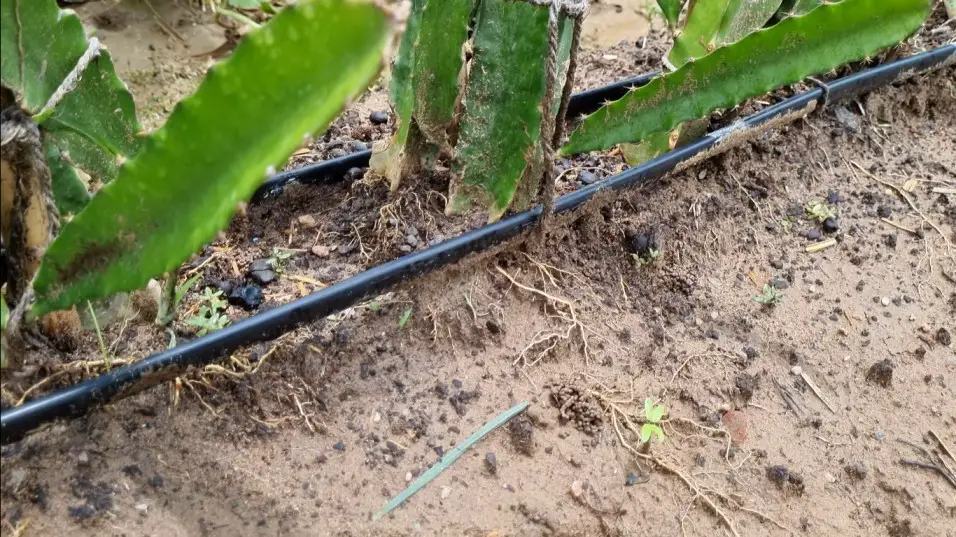
Now that we understand the benefits of Humic acid for dragon fruit plants, let’s look at how to use it effectively in dragon fruit farming. There are several ways to apply humic acid, and each method is designed to target different aspects of plant health.
1. Seed Treatment
Before planting dragon fruit seeds, you can soak them in a diluted humic acid solution. This enhances the germination rate and gives the seeds a healthy start by providing them with essential nutrients.
- How to Apply: Mix a small amount of humic acid with water, and soak your dragon fruit seeds in the solution for a few hours before planting them. This will improve the seed’s ability to sprout and grow into a healthy plant.
2. Root Zone Treatment
humic acid for plants is particularly effective when applied directly to the roots of the dragon fruit plant. It strengthens the root system and improves nutrient absorption, ensuring that the plant grows strong and healthy.
- How to Apply: Mix humic acid with water and pour the solution around the root zone of the plant. This will help the roots absorb more nutrients and water, leading to better growth and development.
3. Soil Application
Applying humic acid to the soil is a great way to improve soil structure and fertility. By enhancing the quality of the soil, humic acid supports healthy plant growth and increases crop production.
- How to Apply: Mix humic acid with water and spray it on the soil. You can also mix it into the soil before planting. This improves the texture of the soil, making it more suitable for dragon fruit cultivation.
4. Irrigation Application
humic acid for dragon fruit plants can be added to irrigation water to ensure that the dragon fruit plants receive consistent nutrition. This is particularly useful for plants that require frequent watering, as it helps to deliver nutrients directly to the roots.
- How to Apply: Add humic acid 98 to your irrigation water at the recommended dosage. This will ensure that the plants receive a steady supply of nutrients, which will help them grow faster and healthier.
5. Mixing with Agricultural Chemicals
humic acid for dragon fruit plants can be mixed with other agricultural chemicals like pesticides or fertilizers to enhance their effectiveness. When used together, these compounds can help protect dragon fruit plants from diseases and pests, while also promoting healthier growth.
- How to Apply: Mix humic acid with other agricultural chemicals as per the instructions on the product labels. Spray the mixture on the plants to provide them with the necessary protection and nutrition.
Benefits of Humic Acid for Dragon Fruit Farming
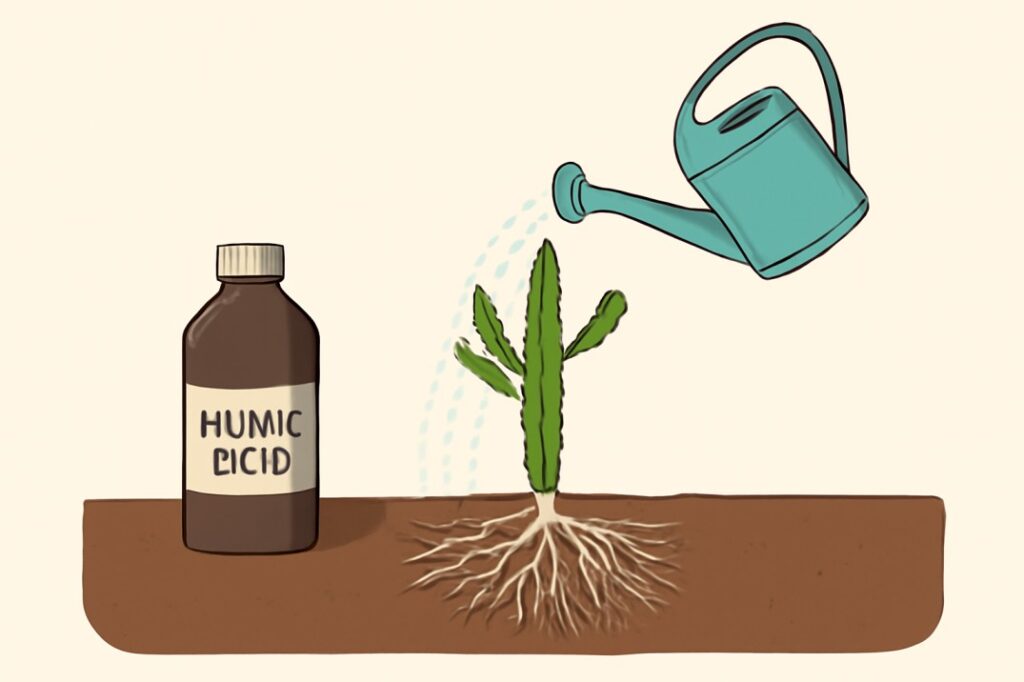
Humic acid 98 offers numerous benefits for dragon fruit farming. Here are some of the key advantages:
- Promotes Root Growth: Humic acid stimulates the growth of healthy, white roots, which are essential for strong plant development.
- Improves Soil Nutrition: It enhances soil fertility, making more nutrients available to the plants.
- Increases Yield: Regular use of humic acid leads to increased crop productivity by improving plant health and growth.
- Enhances Disease Resistance: Humic acid strengthens the plant’s immune system, making it more resistant to diseases and pests.
- Improves Fruit Quality: It helps improve the size, quality, and taste of the dragon fruit.
- Supports Soil Fertility: Humic acid helps maintain healthy soil, ensuring the long-term success of your farming efforts.
Recommended Dosage of humic acid for dragon fruit plants
To get the best results from humic acid 98, it’s important to follow the correct dosage and application methods. Here are some general guidelines:
- For Seed Treatment: Soak seeds in a diluted humic acid solution for a few hours before planting.
- For Root Treatment: Apply a humic acid solution around the root zone of the plant to encourage root development.
- For Soil Application: Mix humic acid with water and spray it on the soil to improve soil quality and promote plant growth.
- For Irrigation: Add humic acid to the irrigation water to provide consistent nutrition to the plants.
NOTE: liquid dosage – 30-40ml per tank 15L, flakes – 15-20g per Tank 15L
Types of Humic Acid Available in the Market
When shopping for humic acid for your dragon fruit farm, you’ll find it available in different forms. The two main types of humic acid are liquid and flakes, each with its own benefits and applications.
1. Liquid Humic Acid (15%)
- Description: Liquid humic acid is a concentrated form that comes in liquid form, usually at a concentration of 15%. It is easy to apply, especially for irrigation or foliar sprays, as it mixes well with water.
- Use: It’s often used for quick absorption by the plants and is ideal for improving soil structure and enhancing nutrient uptake.
2. Flake Humic Acid (98%)
- Description: Flake humic acid is typically more concentrated, with a purity of up to 98%. This form is ideal for farmers who want a more potent solution. However, it needs to be dissolved in water before use.
- Price Range: The price of humic acid flakes can vary widely, ranging from $2 per kg to $20 per kg, depending on the quality. Lower-quality flakes might cost around $2 per kg, while higher-quality flakes can go up to $20 per kg. The price difference often reflects the quality, purity, and the extraction process.
- Use: The flake form is ideal for large-scale farming or when applying humic acid in large quantities.
Bonus Tip for New Farmers
For new dragon fruit farmers, here’s a bonus tip: Start with small doses of humic acid and monitor the plant’s response. Humic acid is a powerful compound, and too much of it can sometimes have unintended effects. It’s best to begin with lower concentrations and gradually increase the dosage as you observe how the plants are responding. This way, you can avoid any potential risks and ensure that the plants are getting the right amount of nutrition.
If you have doubt do let me know in the comment section below.
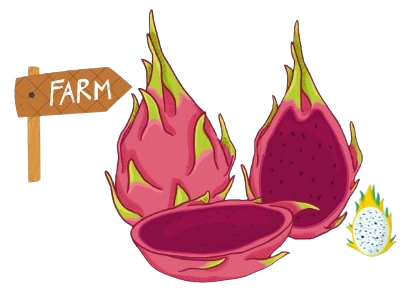
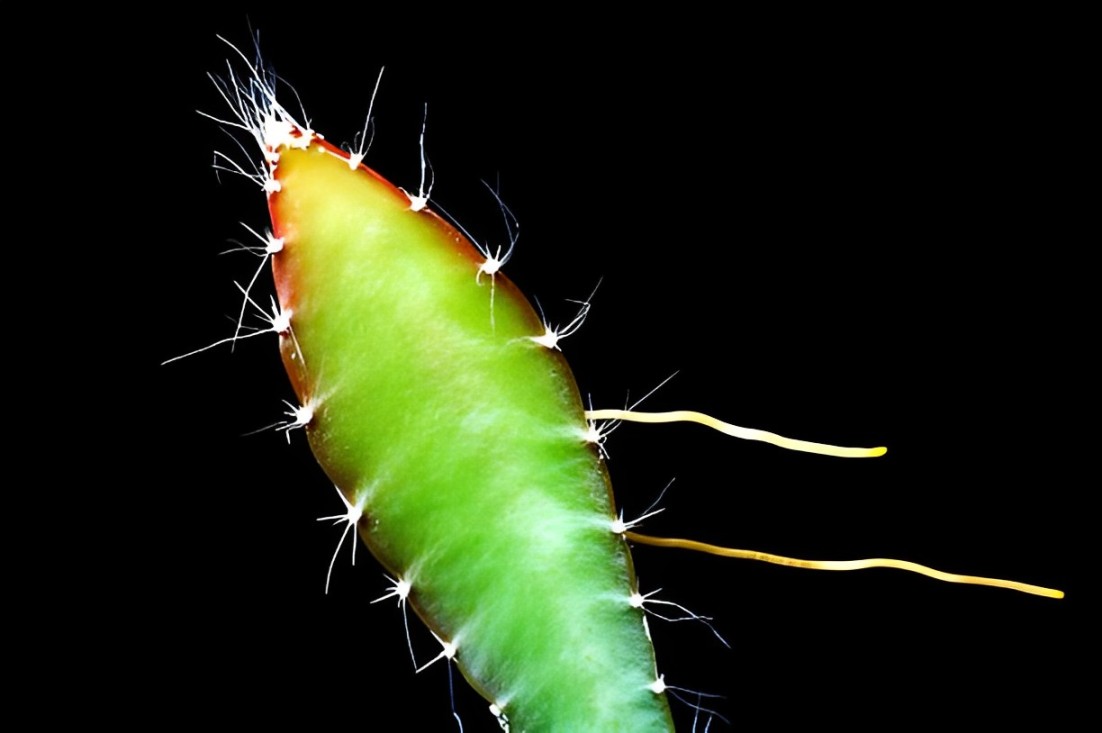
4 thoughts on “Boosting Growth with Humic Acid for Dragon Fruit Plants”